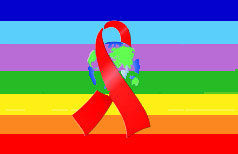HIV and AIDS

- Peace and tolerance worldwide © UNESCO
Health has always been an essential component of development policies. In this domain, as in others, culture has a fundamental role to play.
Conceptions of health and disease, and related beliefs, traditional practices and the use of medicinal plants: these are all essential variables to be taken into account when building sustainable development policies.
Thanks to the World Decade for Cultural Development (1988-1997), and the intellectual agitation that followed, health and culture were brought together and the diversity of their interactions was analysed. From this reflection, a working theme on "Culture and Health" was elaborated.
Currently, its main project is "Culture, HIV and AIDS". Recognizing the multiple aspects of an epidemic that continues to expand in spite of all efforts to halt it, UNESCO favours the comprehensive consideration of the specific cultures of the populations targeted by HIV and AIDS programmes. This socio-anthropological approach encourages mobilization of the cultural resources of such populations in fighting the epidemic, in order to effect long-term behavioural change.

- 27-11-2009


